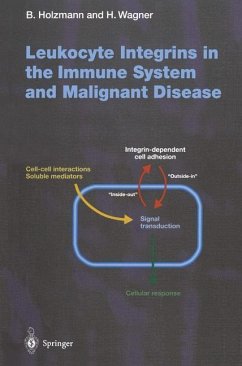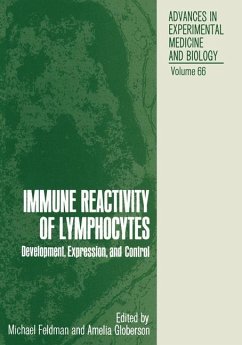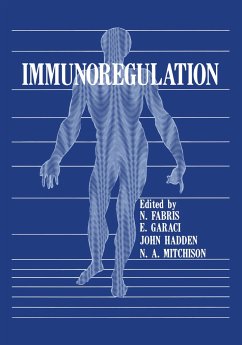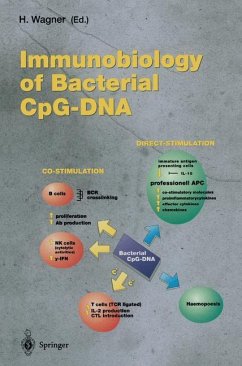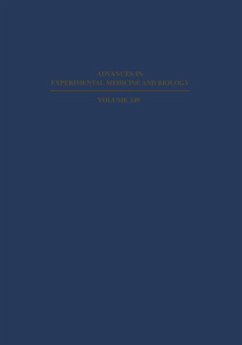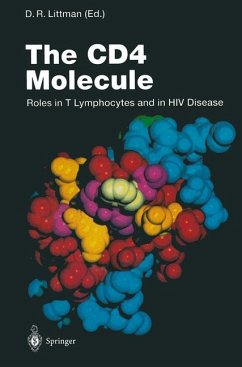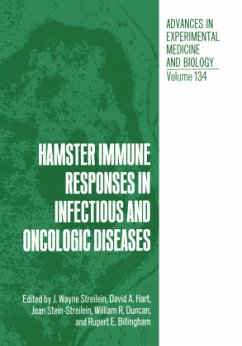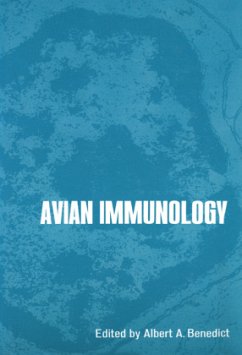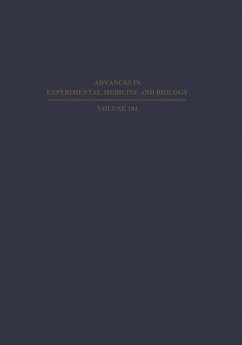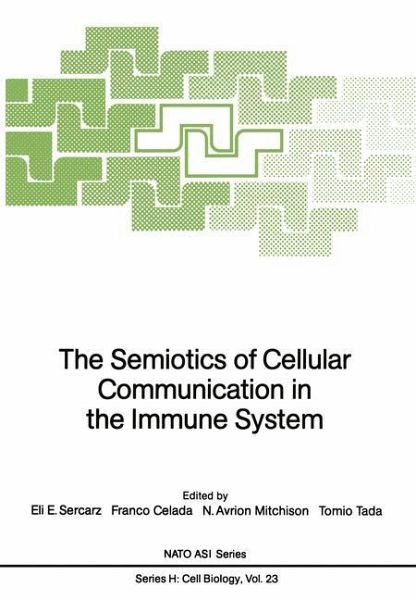
The Semiotics of Cellular Communication in the Immune System

PAYBACK Punkte
58 °P sammeln!
This volume contains the contributions to the workshop "The Semiotics of Cellular Communication in The Immune System" which took place at "11 Ciocco" in the hills north of Lucca, Italy, September ~-12, 1986. The workshop was the first meeting of what we hope will be a broad consideration of communication among lymphocytes, and focused on the new interdisciplinary branch of biological sciences, immunosemiotics. It is in the realm of the possible, if not the probable, that in the future a number of scientists larger than the thirty present at 11 Ciocco will find immunosemiotics to fill a need in...
This volume contains the contributions to the workshop "The Semiotics of Cellular Communication in The Immune System" which took place at "11 Ciocco" in the hills north of Lucca, Italy, September ~-12, 1986. The workshop was the first meeting of what we hope will be a broad consideration of communication among lymphocytes, and focused on the new interdisciplinary branch of biological sciences, immunosemiotics. It is in the realm of the possible, if not the probable, that in the future a number of scientists larger than the thirty present at 11 Ciocco will find immunosemiotics to fill a need in scientific thinking and a gap between biology and the humanities. This might lead to growth and flourishing of the branch, and in this case the first conference and this first book could be blessed by the impalpable qual ity of becoming "historical", if in an admittedly 1 imited sense. Just in case this should happen the organizers/editors think it wise to set the record straight at this particular time, about the sequen~e of events and circumstances that crystallized the archeology of the "11 Liocco" gathering. They feel a sort of obligation to this endeavor: it has happened all too often that innocent historians have been left in utter confusion by the careless founders of new religions, schisms, revolutions, et cetera, who simply forget to jot down the facts before the whirlwind of time engulfs them in its fog.





